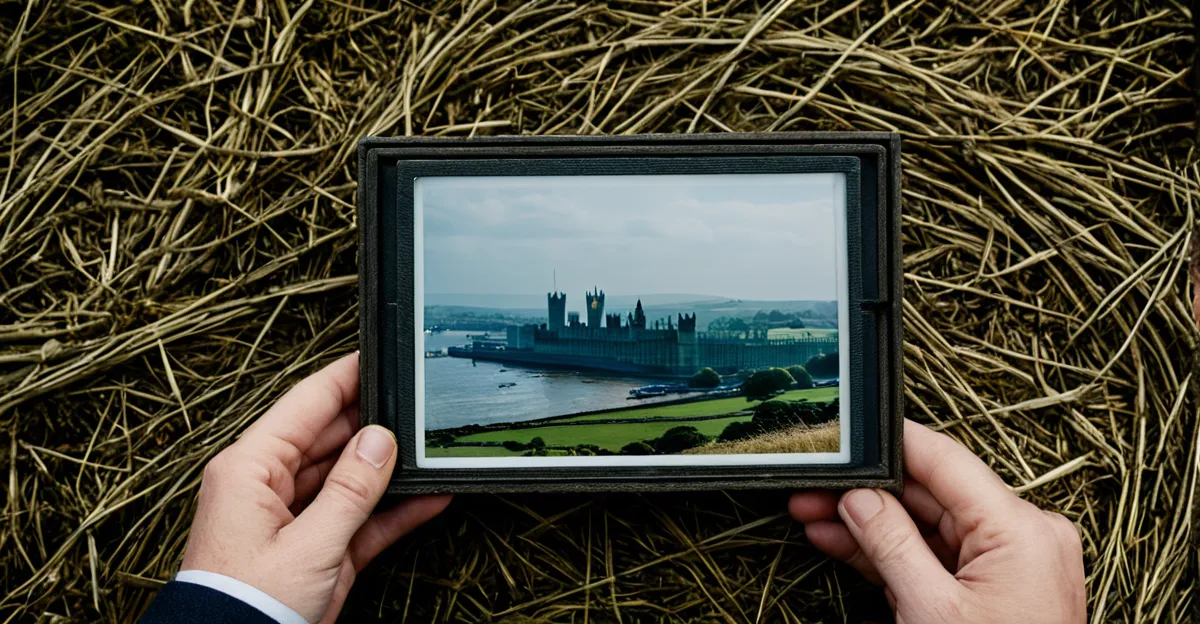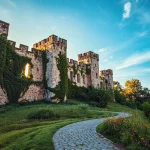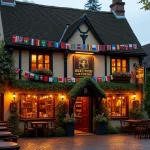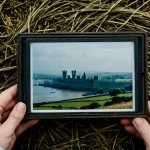Engaging With Local Heritage Tours and Storytelling Events
Discovering the heart of a destination often begins with heritage tours UK, which offer more than just sightseeing; they immerse visitors in local legends and centuries-old histories. These tours are expertly guided, allowing participants to connect emotionally with the past while exploring historic sites. By engaging with knowledgeable guides, you gain firsthand insights into how historical events shaped the region.
In addition to walking through history, historical storytelling events add a rich layer of context. Storytellers bring to life characters and tales from the area, making past events accessible and memorable. This approach transforms facts into vivid experiences, perfect for those seeking deeper meaning behind historical landmarks.
In the same genre : How can you explore the UK’s historical sites?
For a truly immersive experience, many tour operators combine heritage tours UK with live storytelling. These immersive historical experiences allow travelers to feel part of history rather than merely observing it. Whether wandering ancient streets or listening to legends beneath candlelit halls, such activities foster a unique connection with local culture.
Embracing both guided tours and narrative events is key to unlocking the full potential of regional heritage exploration. The synergy enriches understanding and appreciation of the United Kingdom’s diverse historical tapestry.
Also to see : What are the best nature trails for hiking in the UK?
Staying in Historic Accommodations
Experience history beyond the guidebooks
Choosing historic hotels UK or heritage accommodation offers a unique travel experience steeped in cultural richness. Many UK castles, manors, and inns have been thoughtfully restored, preserving original features like stone fireplaces, antique furnishings, and ornate woodwork. These elements transport guests back in time while providing modern comforts.
UK castle stays allow visitors to sleep within walls that have witnessed centuries of history, from medieval battles to royal festivities. Each accommodation tells a story, often accompanied by historical plaques or guided tours explaining the building’s significance. For example, a night in a fortified manor may reveal insights into feudal life or architectural evolution.
Visitors often appreciate the educational value alongside the charm. Discovering when the castle was built, notable inhabitants, and its role in local history enhances the stay. Choosing heritage accommodation supports the preservation of these irreplaceable landmarks, safeguarding them for future generations.
When booking, consider the balance between authenticity and amenities. Many historic hotels UK carefully integrate modern heating, Wi-Fi, and en-suite bathrooms, ensuring comfort without compromising the ambiance. This blend of past and present defines the allure of UK castle stays and heritage lodgings.
Exploring Lesser-Known Historical Landmarks
Delving into hidden historical sites UK reveals a rich tapestry of stories often overlooked by mainstream tours. These off-the-beaten-path UK locations, such as ancient villages or abandoned ruins, offer a genuine connection to authentic UK history. Unlike crowded landmarks, these sites allow a quieter, more intimate experience, inviting visitors to explore without distraction.
Many lesser-known villages retain original architecture and layouts, reflecting centuries-old lifestyles. For example, some historic neighborhoods have preserved cobblestone streets and traditional markets, providing insights into daily life across different eras. Understanding the importance of these sites extends beyond their beauty; they serve as tangible links to the past, preserving local heritage often at risk from urban development.
Visiting these off-the-beaten-path UK sites encourages a more sustainable approach to tourism, reducing pressure on popular destinations while enriching your historical knowledge. To truly appreciate the spectrum of UK history, venturing into hidden historical sites UK is essential. This deeper exploration shapes a more complete and nuanced understanding of the nation’s cultural evolution.
Attending Traditional Festivals and Cultural Events
Exploring UK historical festivals offers a vibrant window into the country’s rich past. These events often showcase local traditions UK communities have preserved over centuries. For example, seasonal gatherings like May Day celebrations or harvest festivals provide engaging opportunities to witness customs deeply rooted in regional identities.
Participating in reenactments adds a dynamic dimension to experiencing UK culture events. These performances meticulously recreate historical moments, allowing attendees to immerse themselves in significant periods—be it medieval markets or Roman fairs. Through this, visitors gain a tangible connection to history beyond museum walls.
Local customs at these festivals encompass music, costumes, crafts, and traditional foods, making them sensory-rich experiences. Engaging with the community during such events not only supports cultural preservation but also fosters understanding of the historical context shaping modern UK life. Whether you attend a Highland games event in Scotland or a folk festival in England, these gatherings celebrate heritage in interactive, memorable ways that truly bring UK history to life.
Visiting Museums With Unique and Regional Focus
Discovering regional UK museums offers a rich window into local history and culture. These museums often highlight specific aspects of their area, such as traditional crafts, regional industries, or unique art forms. Choosing specialist UK museums lets visitors connect deeply with themes tied to distinct places—like maritime heritage on the coast or mining history inland. This targeted approach reveals stories that large, national museums may overlook, bringing history closer to home.
Many of these museums pride themselves on their historical collections UK that include objects and artifacts directly linked to local communities. Items like vintage tools, textiles, or works by regional artists not only document the past but also celebrate the vibrant identity of the area. Engaging with interactive exhibitions enhances this experience, allowing visitors to touch, build, or experiment with replicas, making history tangible and enjoyable.
Moreover, community-curated collections add authenticity by incorporating local voices and memories. They create dynamic spaces where visitors not only learn but also contribute, fostering a strong sense of belonging. This inclusive approach transforms a museum visit into an active exploration of cultural heritage, sparking curiosity and appreciation for the UK’s diverse regional narratives.











